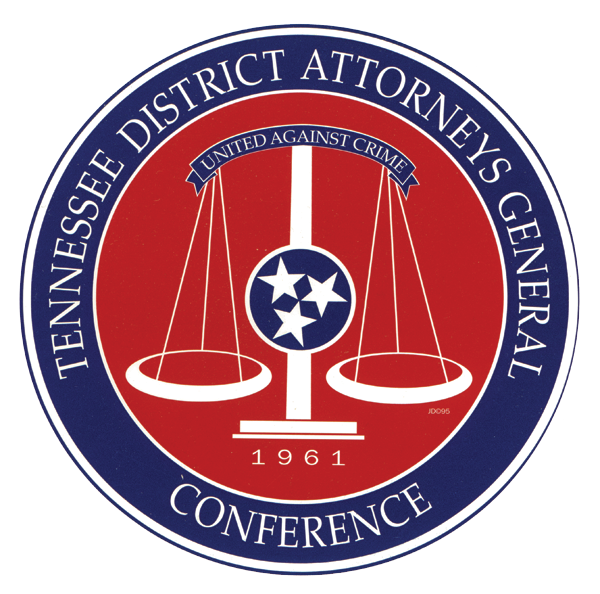Victim Services
Below is information and forms to help victims navigate the criminal justice system, including their constitutional rights, victim impact statement forms and injury compensation applications.
Criminal Justice Process
Arrest Warrant
A written order from a judge that a person be arrested.
Bail/Bond Hearing
Once the defendant has been arrested, the court may hold a bail hearing, sometimes called a “bond hearing,” to determine whether the defendant should be held in the local jail until the trial is complete or can be released on bail. Bail is an amount paid or pledged by the defendant to make sure he or she will appear in court. Not every case will have a bail/bond hearing.
Preliminary Hearing
A probable cause hearing, usually in General Sessions court, to determine if there is reason to believe that a crime has been committed and that the defendant committed it. Attendance by the victim is not required, but victims do have a constitutional right to be present at all hearings where a defendant is present.*
Court Decision
If the court determines that there is reason to believe a misdemeanor crime has been committed and that the defendant committed it, the case goes straight to a plea hearing (step 8). If the court determines that there is reason to believe a felony crime has been committed and that the defendant committed it, the case is “bound over” to grand jury (step 5).
Grand Jury
An independent group of private citizens who listen to information about the crime in order to decide whether the case should go to trial. This is different from a jury trial, and the defendant is not present. The victim’s appearance is required only if subpoenaed or requested.
Indictment
If the grand jurors decide that a case should go to trial, they “return” an indictment or presentment charging the defendant with the crime(s) committed.
Arraignment
The first scheduled appearance by the defendant in Criminal or Circuit Court. The indictment returned by the grand jury is read and the defendant is given a copy. Arrangements are made for an attorney for the defendant.
Plea Agreement
This is a negotiated settlement that allows defendants to accept responsibility for their actions and for the case to be disposed without trial. Once a defendant pleads guilty, it is up to the District Attorney’s Office and the defendant’s attorney to work out an agreement to present to the judge. The defendant may agree to plead guilty to the crime(s) charged or to a lesser offense. The judge may accept or reject the plea. Although you will not have the final say as to what sentence is given, the District Attorney’s Office values and will consider your input. If no plea agreement is reached, the case goes to trial (step 9). If a plea agreement is reached, the case moves straight to sentencing (step 10).
Trial
The court proceeding in which the District Attorney’s Office presents the case for the State, attempting to prove beyond a reasonable doubt that the defendant committed the crime(s) as charged. The defendant may present proof to dispute the State’s claim. Usually, the defendant chooses whether a judge or a 12-person jury will decide the case. You should be present at the trial and may be required to attend if you were a witness to the crime.
Sentencing
After a defendant’s guilty plea is accepted or he/she is found guilty after a trial, the judge decides what happens. The defendant may be sent to prison or jail, or the sentence may be “suspended,” and the defendant put on probation. Probation means the defendant is left free as long as he/she does what the judge has told him/her to do. He/she may also be placed in other alternative programs.
Victim’s Impact Statement
After a defendant’s guilty plea is accepted or he/she is found guilty after a trial, the judge decides what happens. The defendant may be sent to prison or jail, or the sentence may be “suspended,” and the defendant put on probation. Probation means the defendant is left free as long as he/she does what the judge has told him/her to do. He/she may also be placed in other alternative programs.
*For more information on court hearing times and dates, please contact your local Criminal/Circuit Clerk.
The constitutional rights of crime victims Tenn. Const. Article I, § 35 –
To confer with the prosecution
To be free from intimidation, harassment, and abuse
To be present at all proceedings where the defendant has the right to be present
To be heard, when relevant, at all critical stages of the criminal justice process
To be informed of all proceedings, and of the release, transfer, or escape of the accused or convicted person
A speedy trial or disposition and a prompt and final conclusion of the case after the conviction or sentence
To restitution from the offender
To be informed of your constitutional rights as a crime victim
Documents
Victim Witness Pamphlet
Lost Wages Form
Victim Compensation Form
Statewide Resources
Criminal Injuries Compensation
If you or someone you know is an innocent victim of a violent crime committed in the State of Tennessee, the Criminal Injuries Compensation Fund may be a financial resource for you.
TN Voices for Victims
Tennessee Voices For Victims (TVFV) works on behalf of victims of crime in Tennessee. We are a central agency that enables crime victims across the state to network with one another and journey toward healing.
Offender Lookup
VINE is the nation’s leading victim notification network. It allows survivors, victims of crime, and other concerned citizens to access timely and reliable information about offenders or criminal cases in U.S. jails and prisons.
TN Domestic Violence Hotline
The Statewide Domestic Violence Helpline is a referral and counseling helpline for victims of domestic violence. Counselors are available 24/7 to offer referrals and supportive listening, and help with safety planning.
Victim Services Staff
Lisa Moore
Victim Witness Coordinator
lmriggs@tndagc.org
Tiffany Hall
Assistant Victim Witness Coordinator
tahall@tndagc.org
